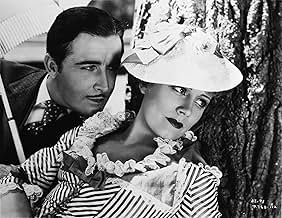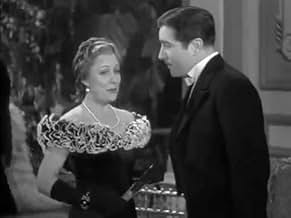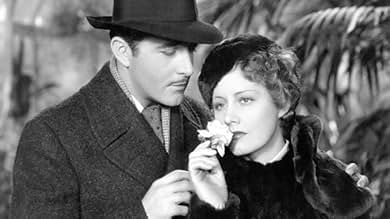An engaged attorney and a divorcee fall for each other in 1870s Manhattan.An engaged attorney and a divorcee fall for each other in 1870s Manhattan.An engaged attorney and a divorcee fall for each other in 1870s Manhattan.
- Awards
- 3 wins total
Barry O'Moore
- Mr. Welland
- (as Herbert Yost)
Lowden Adams
- Jenkins
- (uncredited)
Muriel Barr
- Miss Allison - Jenkins' Daughter
- (uncredited)
Harry Beresford
- Museum Guard
- (uncredited)
Lynn Browning
- Miss Archer
- (uncredited)
Herbert Bunston
- W.J. Letterblair
- (uncredited)
Bess Flowers
- Child's Mother
- (uncredited)
Alf James
- Man Who Comes with Chairs
- (uncredited)
John Merton
- John
- (uncredited)
6.2589
1
2
3
4
5
6
7
8
9
10
Featured reviews
Surprisingly fresh
I have seen Scorsese's film many times and have always loved the luxurious attention to detail, but always thought Mae was miscast and there wasn't much humor, it was more of a melodramatic romance than a statement on values and morals of the time, so I was hesitant to watch this version, figuring it would be boring and predictable...
Instead, I was pleasantly surprised, this film actually had the depth, humor and awareness that I did not find in Scorsese's film. The movie is also remarkably adult for its time, and totally believable as well as faithful to the novel; the dialog was crisp, quick and mature and the story moved along steadily.
Nobody seems miscast or out of place and unlike other reviewers, I didn't find any problem with John Bole's performance, I thought he conveyed exactly what he was supposed to and was even less wimpy than Daniel Day-Lewis's performance in the Scorsese film.
Overall I recommend this version highly, and while I do prefer the pace of this film, it will never compare to the visual sumptuousness of the Scorsese version.
Instead, I was pleasantly surprised, this film actually had the depth, humor and awareness that I did not find in Scorsese's film. The movie is also remarkably adult for its time, and totally believable as well as faithful to the novel; the dialog was crisp, quick and mature and the story moved along steadily.
Nobody seems miscast or out of place and unlike other reviewers, I didn't find any problem with John Bole's performance, I thought he conveyed exactly what he was supposed to and was even less wimpy than Daniel Day-Lewis's performance in the Scorsese film.
Overall I recommend this version highly, and while I do prefer the pace of this film, it will never compare to the visual sumptuousness of the Scorsese version.
Thanks to TCM for the opportunity of watching this rare film.
Irene Dunne shines in this fine(one must remember it was the post-code 1930s)adaptation of the Edith Wharton novel, as Countess Ellen Olenska, an american born member of New York's high society, who was raised and married in Europe, far way from that city's strict society conventions, now an outsider in her own family. She returns to New York city because she wants to divorce her polish aristocrat husband, where she falls in love with young lawyer Newland Archer, her cousin's fiancé.
John Boles, as usual, is just so-so as Newland Archer, although I must say, that upon watching the movie I felt he was much more effective when impersonating him in his old age. This actor always reminds me of Robert Taylor, because although the latter achieved superstar stardom and had better looks, their acting abilities and inexpressiveness are roughly equivalent. As well, both served as "escorts" in many star vehicles of notable 1930s female stars: Irene Dunne, Barbara Stanwyck, etc.
Miss Dunne, an excellent comedienne and dramatic actress, had previously worked with Boles in the 1932 weepie "Back Street", and this film's plot is in the same category. She looks very beautiful indeed in period clothing. Julie Haydon is rightly "controlled" and restrained, as her cousin May.
Helen Westley gives the greatest performance among the supporting players, as Old Dowager Mrs. Manson Mingott, both Countess Olenska's and May's understanding and very warm grandmother. Laura Hope Crews is very good as Dunne's stuffy and very concerned aunt (and May's mother), and Lionel Atwill plays an unscrupulous "married man of bad reputation" who befriends Dunne, in spite of the scandal it may cause, in the opinion of her family.
Recommended viewing for '30s movie fans.
John Boles, as usual, is just so-so as Newland Archer, although I must say, that upon watching the movie I felt he was much more effective when impersonating him in his old age. This actor always reminds me of Robert Taylor, because although the latter achieved superstar stardom and had better looks, their acting abilities and inexpressiveness are roughly equivalent. As well, both served as "escorts" in many star vehicles of notable 1930s female stars: Irene Dunne, Barbara Stanwyck, etc.
Miss Dunne, an excellent comedienne and dramatic actress, had previously worked with Boles in the 1932 weepie "Back Street", and this film's plot is in the same category. She looks very beautiful indeed in period clothing. Julie Haydon is rightly "controlled" and restrained, as her cousin May.
Helen Westley gives the greatest performance among the supporting players, as Old Dowager Mrs. Manson Mingott, both Countess Olenska's and May's understanding and very warm grandmother. Laura Hope Crews is very good as Dunne's stuffy and very concerned aunt (and May's mother), and Lionel Atwill plays an unscrupulous "married man of bad reputation" who befriends Dunne, in spite of the scandal it may cause, in the opinion of her family.
Recommended viewing for '30s movie fans.
Captures The Times
Irene Dunne and John Boles star in this adaptation of the Edith Wharton novel. A flashback takes the viewer back to the age of Victorian morals, when propriety and social order were the prime values of society.
Newland Archer (Boles) is engaged, but finds himself helplessly attracted to Ellen (Dunne), the cousin of his fiancée, May (Julie Haydon). The upper crust of polite society are constrained by even the appearances of impropriety, so he cannot act upon his feelings. But he must. More than the others in his circle, he dares think beyond what is expected of him. In this sense, the story is about the individual versus society.
But it is also about the agency of women. Ellen chastises herself continuously for even having her inappropriate feelings. Society, in the guise of protection, binds women to strictures. Newland asks if they must "bury" a woman just to protect her virtue.
Boles and Dunne are good in their roles. The surrounding cast is equally strong. Julie Haydon stands out; her portrayal of May is luminous and vulnerable: just the way it must be to create conflict within Newland and Ellen.
The emotions in the film are restrained in accordance with the story. But the viewer can still feel the passions that are expressed in small gestures and cloaked phrases.
Newland Archer (Boles) is engaged, but finds himself helplessly attracted to Ellen (Dunne), the cousin of his fiancée, May (Julie Haydon). The upper crust of polite society are constrained by even the appearances of impropriety, so he cannot act upon his feelings. But he must. More than the others in his circle, he dares think beyond what is expected of him. In this sense, the story is about the individual versus society.
But it is also about the agency of women. Ellen chastises herself continuously for even having her inappropriate feelings. Society, in the guise of protection, binds women to strictures. Newland asks if they must "bury" a woman just to protect her virtue.
Boles and Dunne are good in their roles. The surrounding cast is equally strong. Julie Haydon stands out; her portrayal of May is luminous and vulnerable: just the way it must be to create conflict within Newland and Ellen.
The emotions in the film are restrained in accordance with the story. But the viewer can still feel the passions that are expressed in small gestures and cloaked phrases.
Restrained Emotions
A lawyer attempting to obtain a divorce for a countess finds his growing love resisted by THE AGE OF INNOCENCE in which they lived.
Edith Wharton's celebrated novel, illustrating how personal happiness is often crushed by public propriety, is given a fine adaptation in this well-produced film from Radio Pictures. While the movie relentlessly features almost nothing but dialogue, it is always sophisticated and deals with matters still of some importance.
In a movie with so much talk the performances are paramount and they are all of a high order. Lovely Irene Dunne is radiant as the American countess restricted by society from following her heart. John Boles is very effective as the lawyer who must also either bow to convention or be crushed by it. Feisty Helen Westley steals nearly every scene she's in as Dunne's wealthy and outspoken Granny. Laura Hope Crews is perfectly cast as Westley's slightly flustered daughter, the mother of Boles' pretty fiancée, Julie Haydon. Herbert Yost is Crews' meek little husband, while splendid Lionel Atwill enjoys himself as a rich rascal operating on society's fringe.
Movie mavens will recognize Harry Beresford as a canny museum guard and Inez Palange as a stubborn Italian maid, both uncredited.
The jazzy montage which opens the film has virtually no relationship to anything that follows and serves only to wake the audience up.
Edith Wharton's celebrated novel, illustrating how personal happiness is often crushed by public propriety, is given a fine adaptation in this well-produced film from Radio Pictures. While the movie relentlessly features almost nothing but dialogue, it is always sophisticated and deals with matters still of some importance.
In a movie with so much talk the performances are paramount and they are all of a high order. Lovely Irene Dunne is radiant as the American countess restricted by society from following her heart. John Boles is very effective as the lawyer who must also either bow to convention or be crushed by it. Feisty Helen Westley steals nearly every scene she's in as Dunne's wealthy and outspoken Granny. Laura Hope Crews is perfectly cast as Westley's slightly flustered daughter, the mother of Boles' pretty fiancée, Julie Haydon. Herbert Yost is Crews' meek little husband, while splendid Lionel Atwill enjoys himself as a rich rascal operating on society's fringe.
Movie mavens will recognize Harry Beresford as a canny museum guard and Inez Palange as a stubborn Italian maid, both uncredited.
The jazzy montage which opens the film has virtually no relationship to anything that follows and serves only to wake the audience up.
adaptation of Edith Wharton novel
This "Age of Innocence" from 1934, of course, cannot even approach the sumptuous beauty.amazing acting, and rich story-telling of the Martin Scorsese "Age of Innocence" from 1993 starring Daniel Day-Lewis, Winona Ryder, and Michelle Pfeiffer.
The 1934 movie stars Irene Dunne as Ellen, John Boles as Newland, and Julie Haydon as May.
The story is told in flashback by the elderly Newland. As a young attorney in the late 1800s, he was engaged to May when her cousin Ellen came to visit from Europe. She plans to divorce her husband and is a social outcast, as these things were never done. Newland and Ellen fall in love. Do they defy convention and marry? Or does Newland marry May as promised?
Irene Dunne is lovely as Ellen. She was an actress who could do comedy and drama. John Boles was a huge star and not a tremendous actor. That kind of look was considered attractive way back when; today it has gone out of style.
There are good performances, but there is no way to watch this film after seeing the Scorsese film. It is studio-made, looks dull, and is dull. This is a story with a great deal of depth that seems untouched here -- lots going on underneath all the gentility, the trap of conventions -- here told as an ordinary story.
Helen Westley is wonderful as the cousins' grandmother, as is Laura Hope Crews as Dunne's aunt and May's mother. Lionel Atwill is also on hand as a married man who is a friend of Dunne's, an unacceptable situation.
The novel was also adapted into a play, on Broadway starring Katherine Cornell as Ellen and Franchot Tone as Newland.
If you haven't seen the stunning Scorsese film, see it.
The 1934 movie stars Irene Dunne as Ellen, John Boles as Newland, and Julie Haydon as May.
The story is told in flashback by the elderly Newland. As a young attorney in the late 1800s, he was engaged to May when her cousin Ellen came to visit from Europe. She plans to divorce her husband and is a social outcast, as these things were never done. Newland and Ellen fall in love. Do they defy convention and marry? Or does Newland marry May as promised?
Irene Dunne is lovely as Ellen. She was an actress who could do comedy and drama. John Boles was a huge star and not a tremendous actor. That kind of look was considered attractive way back when; today it has gone out of style.
There are good performances, but there is no way to watch this film after seeing the Scorsese film. It is studio-made, looks dull, and is dull. This is a story with a great deal of depth that seems untouched here -- lots going on underneath all the gentility, the trap of conventions -- here told as an ordinary story.
Helen Westley is wonderful as the cousins' grandmother, as is Laura Hope Crews as Dunne's aunt and May's mother. Lionel Atwill is also on hand as a married man who is a friend of Dunne's, an unacceptable situation.
The novel was also adapted into a play, on Broadway starring Katherine Cornell as Ellen and Franchot Tone as Newland.
If you haven't seen the stunning Scorsese film, see it.
Did you know
- TriviaThe original Broadway production starred Katharine Cornell as Ellen Olenska, and Franchot Tone as Newland Archer.
- GoofsAs evidenced by a dated letter, Newland assisted Ellen with her divorce case in August 1879. Newland and May were married just after the following Easter, which would make it 1879. After returning from their honeymoon, they receive an invitation for a party on Wednesday, October 2nd. That would be correct if it was still 1878, but in 1879, October 2nd was a Thursday.
- Quotes
Julius Beaufort: After all your exquisite associations over there, how do you think you're going to like it here?
Ellen: I think it quite like heaven.
Julius Beaufort: Yes, I have that feeling too sometimes. You mean, just some place to go after you're dead?
- ConnectionsReferences All Quiet on the Western Front (1930)
- SoundtracksNone But the Lonely Heart
(1869) (uncredited)
Music by Pyotr Ilyich Tchaikovsky
Played during the opening credits and often as background music
- How long is The Age of Innocence?Powered by Alexa
Details
- Release date
- Country of origin
- Languages
- Also known as
- La edad de la inocencia
- Filming locations
- Production company
- See more company credits at IMDbPro
- Runtime
- 1h 21m(81 min)
- Color
- Aspect ratio
- 1.37 : 1
Contribute to this page
Suggest an edit or add missing content



































